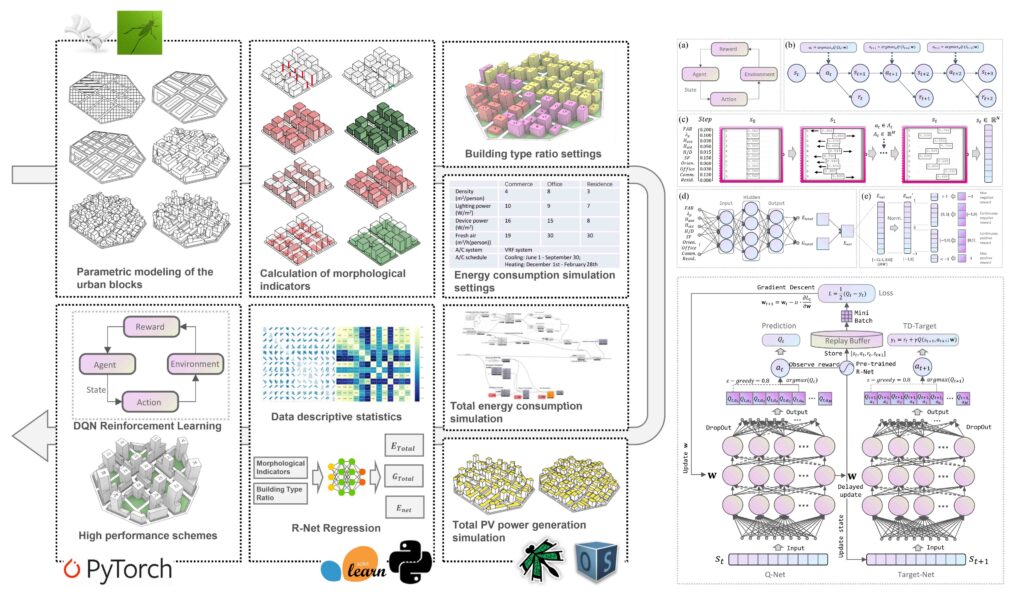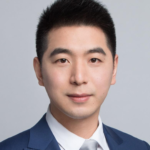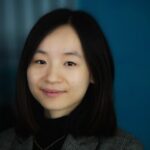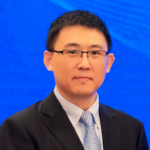
Description:
Required Software: 1)未来设计方向 | Future Design: Rhino/Grasshopper中级;性能模拟软件 初级;Python/Sci-kit learn初级 Intermediate in Rhino/Grasshopper, beginner in performance simulation software (Ladybug tools, Energyplus, etc.), beginner in Python/Sci-kit learn; 2)智能推演方向 | Intelligent Inference: ArcGIS (pro) 中级;能耗、碳排放相关计算软件 初级;Python/Tensorflow/Pytorch初级 Intermediate in ArcGIS (pro), beginner in Carbon emission related calculation software (EnergyPlus, CitySim), beginner in Python/Tensorflow/Pytorch
Required Hardware: 个人电脑 PC
Maximum number of participating students: 100
注意:由于系统原因,也请已成功报名的申请人填写下方调查问卷,并将简历、相关作品、论文等支撑材料发送至邮箱便于筛选:df2022.aicarboncity@gmail.com,邮件标题:姓名-学校/机构-年级/学历-意向方向,谢谢大家。若有疑问,可扫码进微信群咨询。
1) 介绍 | Introduction
面向当前气候变化,中国已经制定了2030碳达峰、2060碳中和的发展目标。目前,城市已经消耗了2/3的全球能源,并产生了超过70%的碳排放。作为设计师,我们如何结合设计与技术,设计碳中和城市?作为研究者,我们如何对城市碳排放进行预测,为碳中和城市的实现制定路线图?人工智能可能会帮助我们找到答案。 本次工作营将分为未来设计与智能推演两个方向,将分别从设计与研究角度探讨人工智能如何助力实现碳中和城市。
- 未来设计方向,3组(每组5人)学员将通过学习性能驱动的设计工作流程,探索实现碳中和城市的智能设计方法。
- 智能推演方向,3组(每组5人)学员将学习借助地理信息系统、多源数据、城市能源建模开展城市与建筑的碳排放预测研究,并为城市发展方向提供建议。
工作营教学将包含理论教学与技术指导,学员将基于教学内容和自身背景以小组形式开展主题研究。工作营将组织系列特邀讲座和青年学者论坛加深学员对工作营主题的多维理解,并拓展学员自身影响力与交叉合作潜力。 工作营各小组最终成果包括海报,2-3分钟视频、汇报。 Facing recent climate change, China has set development goal to become carbon neutral by 2060. Currently, cities already consume 2/3 of global energy and produce over 70% of carbon emissions. As designers, how can we contribute to achieve a balance between design and technology while designing for future carbon-neutral cities? As researchers, how can we anticipate urban carbon emissions and draw a roadmap for carbon-neutral cities? Artificial intelligence may help in the discovery of the solutions. The workshop includes two main directions, Future Design and Intelligent Inference, to explore how AI may contribute to the development of carbon-neutral cities from design and research perspectives, respectively.
- In Future Design Group, participants will learn about performance-driven design workflows and investigate intelligent design strategies for generating carbon-neutral cities.
- In Intelligent Inference Group, participants will employ GIS, multi-source data, and urban energy modeling to predict the carbon emissions of cities and propose development policies.
The workshop will contain both theoretical and technical instruction. Participants will work in teams on content- and background-related themes. The workshop will organize a series of invited Keynote Speech and Young Scholars Forums. The final achivement includes posters, 2–3-minute videos and presentations.
2) 学员要求 | Required skills
- 未来设计方向 | Future Design (15人)
至少掌握一种建成环境性能评估软件(如:Ladybug tools, EnergyPlus等);了解机器学习和深度学习原理;有参数化生成设计经验、机器学习使用经验优先(报名时需提供相关作品)。 Participants should be familiar with at least one built environment performance evaluation software (e.g., Ladybug tools, EnergyPlus etc.); have basic knowledge of machine learning and deep learning. Participants with experience in parametric generative design and machine learning are preferred (related works should be submitted in application.)
- 智能推演方向 | Intelligent Inference (15人)
对气候变化与碳排放感兴趣,并掌握相关基础理论知识;具备城市研究、多源数据挖掘经验;了解机器学习和深度学习原理;已公开发表学术论文1篇及以上优先(报名时需提供相关论文或DOI号)。 Participants should be interested in climate change and carbon emissions, also have basic theoretical knowledge; have experience in urban research, multi-source data mining; have basic knowledge of machine learning and deep learning. Participants who have published one or more academic research papers are preferred (published papers / DOI number should be submitted in application).
- 旁听席 | Auditorium (max. 30人)
旁听席将开放给对智能设计、碳中和方向感兴趣但基础薄弱的学员,特别欢迎未来有志于开展相关研究与实践的学员。旁听学员将参与理论讲座、青年学者论坛、工作营最终汇报,无需参与成果制作。 The auditorium will be available to participants interested in intelligent design and carbon neutrality but with week foundation, especially for who has long being aspiring to a scientific career. Audiences can attend theoretical lectures, the Young Scholars Forum and final workshop presentation, but they will not be required to contribute to the outcomes.
Schedule:
timezone: (GMT +8:00) Beijing, Perth, Singapore, Hong Kong| Start time | End time | Description |
|---|---|---|
| 2022-06-26 - 08:30 | 2022-06-26 - 22:00 | 工作营介绍、学员破冰;理论课程:设计中的环境智能;理论课程:碳中和实现路径;技术课程:环境性能模拟;青年学者论坛 Introduction; Theoretical lecture: Environmental AI in design; Theoretical lecture: Carbon neutral pathway; Technical guidance: Environmental performance simulation; Young Scholars Forum |
| 2022-06-27 - 08:30 | 2022-06-27 - 22:00 | 理论课程:人工智能基础与AI for Science;设计组技术课程:城市生成;推演组技术课程:城市数据获取;讨论与答疑:分组和确定小组研究主题;青年学者论坛 Theoretical lecture: Fundamentals of artificial intelligence and AI for Science; Technical guidance for Future Design: Urban generation; Technical guidance for intelligent Inference: Urban data acquisition; Discussion and Q&A: Grouping and determining group research topics; Young Scholars Forum |
| 2022-06-28 - 08:30 | 2022-06-28 - 22:00 | 设计组技术课程:机器学习、深度学习和深度强化学习;推演组技术课程:城市能源建模与碳排放评估;讨论与答疑:小组研究主题深化和点评;小组合作;青年学者论坛 Technical guidance for Future Design: ML, DL, and DRL; Technical guidance for intelligent Inference: Urban energy modeling and carbon emission evaluation; Discussion and Q&A: Group research topic deepening; Teamwork; Young Scholars Forum |
| 2022-06-29 - 08:30 | 2022-06-29 - 22:00 | 设计组技术课程:优化算法;推演组技术课程:目标检测与语义分割;讨论与答疑;小组合作 Technical guidance for Future Design: Optimization algorithm; Technical guidance for intelligent Inference: Object detection and semantic segmentation; Discussion and Q&A; Teamwork |
| 2022-06-30 - 08:30 | 2022-06-30 - 22:00 | 讨论与答疑;小组合作 Discussion and Q&A; Teamwork |
| 2022-07-01 - 08:30 | 2022-07-01 - 22:00 | 讨论与答疑;小组合作 Discussion and Q&A; Teamwork |
| 2022-07-02 - 08:30 | 2022-07-02 - 22:00 | 成果制作;讨论与答疑:学术合作网络;评图和颁奖 Outcome production; Discussion and Q&A: academic cooperation network; Presentation and Awards |
Instructors:
 |
Jiawei Yao | Jiawei Yao, Associate professor of the College of Architecture and Urban Planning, Tongji University. He received his Master and Ph.D. degree from the University of Nottingham, UK. His main research area is intelligent architecture design and microclimate digital twin technology. He is funded by several national and provincial projects, and has published more than 40 research papers. 姚佳伟,同济大学建筑与城市规划学院副教授、硕士生导师,上海市青年科技“扬帆”人才,硕士与博士毕业于英国诺丁汉大学。主要研究方向为建筑智能设计与微气候数字孪生技术。已主持国家自然科学基金、全国博士后基金等多项国家与省部级课题。已发表中英论文四十余篇,担任《Building and Environment》等国内外期刊客座编辑与论文评审工作,参与起草发布多项上海市地方标准。 |
 |
JMENG | Dr. Jing Meng is an Associate Professor at the Bartlett School of Sustainable Construction, University College London and a fellow of Cambridge Centre for Environment, Energy and Natural Resource Governance. Her research focuses on technology innovation, climate change policies, and co-mitigation of climate change and air pollution. Jing received her Ph.D degree in Environmental Geography from Peking University in 2016 and her bachelor degree in Building Environment and Energy Engineering from Huazhong University of Science and Technology in 2007. She is a highly cited researcher awarded by Clarivate in corss-board in 2020 and 2021. She has a proven track record of high-quality publications in international peer-reviewed journals, such as Proceedings of the National Academy of Sciences |
 |
fubin | General manager of CLS Group-METEODYN China (CLS, a subsidiary of CNES and CNP, is a worldwide company and pioneer provider of monitoring and surveillance solutions for Earth since 1986), more than 15 years experience in the field of new energy, including new energy intelligence digital platform design, CFD & meteorological modeling, data analysis & power forecast. Provide relevant system design for large energy investors and wind turbines manufacturers such as CGN Wind Power, Three Gorges New Energy, CRP, CHN Energy, Goldwind, China Windey. |
Disclaimer:
All workshops will accept 100 applications MAX.




